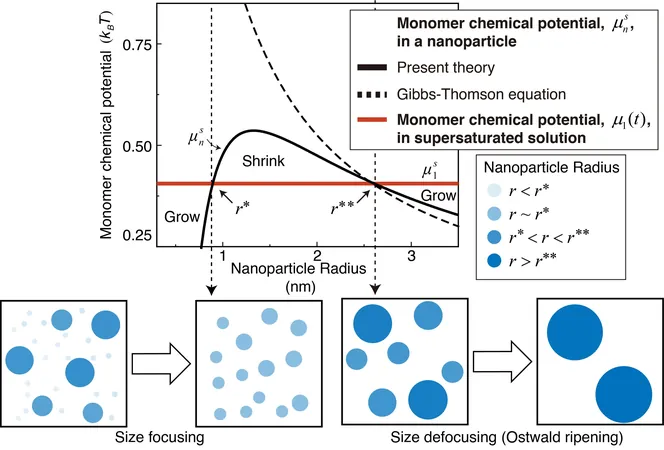
Revolutionary Breakthroughs: How New Drugs, Diet Changes, and AI are Transforming Heart Health
2025-09-06
Author: Yu
A Gamechanger in Blood Pressure Management
In a groundbreaking development, doctors in Madrid are celebrating a revolutionary new pill that promises to be a "gamechanger" for patients suffering from high blood pressure that resists traditional treatments. This innovation is particularly crucial as nearly 1.3 billion people worldwide grapple with hypertension, with about half of those cases remaining uncontrolled. The new medication, known as baxdrostat, has shown remarkable potential, demonstrating a significant reduction in blood pressure—around 9-10 mmHg greater than placebo—after just 12 weeks. This decrease could substantially lower the risk of heart attacks, strokes, and kidney disease.
Reevaluating Heart Health Treatments
At the conference, researchers unveiled other promising findings in cardiology. Notably, a drug called clopidogrel has proven to outperform aspirin in preventing heart attacks and strokes, reducing major adverse events by 14%. In addition, weight loss medications have shown the potential to cut the risk of hospitalizations and early deaths in heart patients by nearly 50%.
Diet: The Heart's Best Friend
An exciting study from Danish researchers emphasized the heart-protective properties of potassium-rich foods like avocados, bananas, and spinach, which could decrease the risk of heart disease and associated hospitalization by 24%. This follows previous research indicating that reducing salt intake is beneficial for heart health. Experts recommend incorporating other potassium-rich options such as pulses, fish, nuts, and seeds into your diet for optimal heart health.
The Power of Exercise
Regular physical activity is essential for a healthy heart, helping to lower blood pressure and cholesterol levels while aiding in weight management. As if that weren't enough, doctors in Madrid highlighted that staying fit could also help heal emotional wounds, boosting overall well-being.
AI: The Future of Cardiology
In an impressive technological advancement, an AI-powered stethoscope has been developed by a team from Imperial College London, capable of detecting three heart conditions in just 15 seconds. This sophisticated device analyzes subtle differences in heartbeat and blood flow that are undetectable by the human ear, providing rapid ECG measurements. Early intervention made possible by this innovation could save countless lives.
Furthermore, a revolutionary AI scanning tool has reportedly tripled the recovery rate for stroke patients, while the generative AI tool ESC Chat is streamlining access to clinical guidelines for cardiologists everywhere.
Spotting Heart Conditions in Children
A new cheek-swab test promises to identify arrhythmogenic cardiomyopathy (ACM) in children five years before conventional diagnosis. This innovation highlights the efforts of experts at Great Ormond Street Hospital to develop user-friendly testing kits for home use. However, concern looms over rising vaping rates among children, as cardiologists warn of the potentially irreversible health impacts of e-cigarettes.
Vaccines: A New Frontier in Heart Disease Prevention
Vaccines are increasingly recognized not just for their role in combating infections but also in preventing cardiovascular diseases. The world's first global review of the shingles vaccine revealed it could reduce the risk of heart attacks and strokes by up to 18%. This exciting data opens new avenues in preventative cardiology, underscoring the broad potential of vaccination in safeguarding heart health.


 Brasil (PT)
Brasil (PT)
 Canada (EN)
Canada (EN)
 Chile (ES)
Chile (ES)
 Česko (CS)
Česko (CS)
 대한민국 (KO)
대한민국 (KO)
 España (ES)
España (ES)
 France (FR)
France (FR)
 Hong Kong (EN)
Hong Kong (EN)
 Italia (IT)
Italia (IT)
 日本 (JA)
日本 (JA)
 Magyarország (HU)
Magyarország (HU)
 Norge (NO)
Norge (NO)
 Polska (PL)
Polska (PL)
 Schweiz (DE)
Schweiz (DE)
 Singapore (EN)
Singapore (EN)
 Sverige (SV)
Sverige (SV)
 Suomi (FI)
Suomi (FI)
 Türkiye (TR)
Türkiye (TR)
 الإمارات العربية المتحدة (AR)
الإمارات العربية المتحدة (AR)